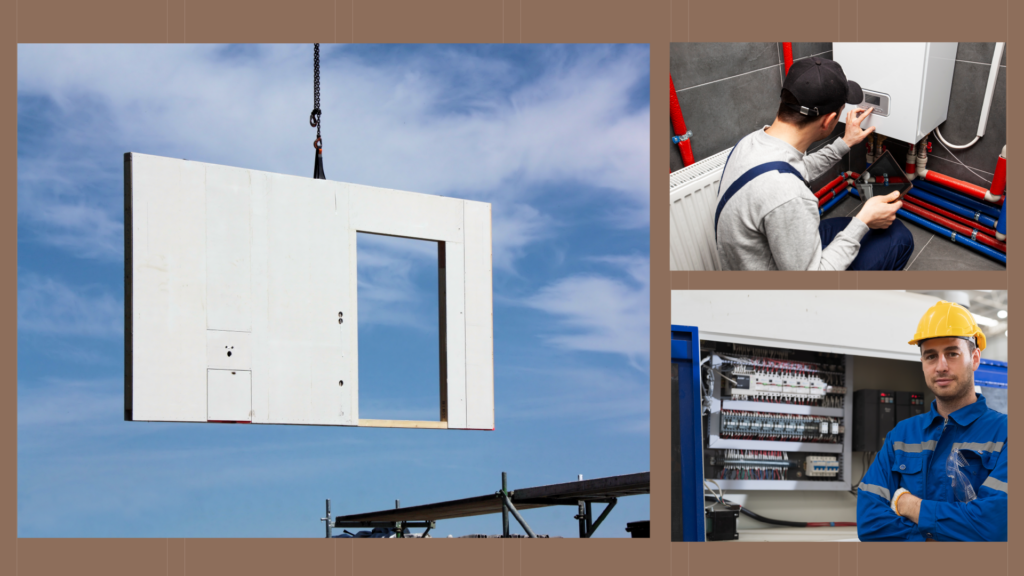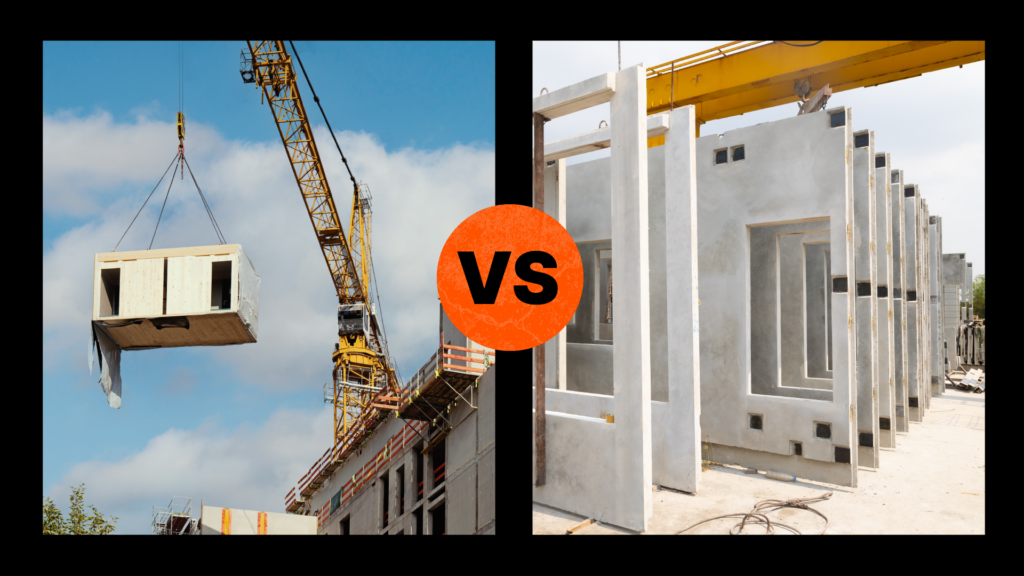— 7 min read
Sales Tax on Construction Materials: Who Pays It and When
Last Updated Apr 8, 2025
Last Updated Apr 8, 2025

Sales tax plays a major role in construction, influencing everything from material costs to contract pricing and compliance requirements. But deciding when and how sales tax on construction work applies isn’t always straightforward. With rules varying by state, contract type and client, even experienced contractors can run into unexpected tax liabilities.
Whether submitting a local bid or compiling a revenue recognition report, knowing how construction materials are taxed can make a big difference. Having a solid grasp of sales tax can help construction companies make smarter business decisions. This article breaks down who pays sales tax on construction work and materials, when it’s owed and how to stay compliant.
Table of contents
Classifying Construction Materials for Sales Tax Purposes
Sales tax is levied by almost all US states and many municipalities on goods when they are sold. In some states, certain services may also be subject to sales tax. The state mandates the percentage of sales tax that retailers must add to the price of merchandise when reselling it to a consumer. The retailer then has to report and turn over all the sales tax collected to the proper tax authorities.
Sales tax treatment varies depending on how construction materials, fixtures and equipment are classified. Understanding these distinctions helps contractors determine when sales tax applies, who is responsible for paying it, and whether exemptions are available. Almost all state sales tax laws distinguish three types of construction materials:
Materials
Like lumber, screws and pipes that are transformed when installed
Fixtures
Like sinks and air conditioners that are not altered during installation
Machinery and Equipment
Intended for direct use in operating the client’s business
These distinctions come into play for sales tax purposes and are equally useful for general construction accounting and cost monitoring.
Are contractors consumers or retailers?
Contractors often assume they are the end users of the materials they purchase, but state and local tax authorities may classify them differently depending on the situation.
While prime and specialty contractors buy materials for use on a jobsite, they don’t always own those materials in the eyes of tax law. Instead, they act as intermediaries between suppliers and property owners.
- If a contractor pays sales tax at the time of purchase, they are considered consumers.
- If they do not pay sales tax upfront, they are classified as retailers and must collect sales tax when billing the client.
Understanding this distinction is important for proper tax reporting and compliance, and helps contractors avoid miscalculations that could lead to penalties or disputes.
There is no special category or designation for sales tax on construction work, so the first step is to determine whether a contractor is the retailer or the consumer of construction materials.
This status is especially important for construction companies using the percent complete method that want an accurate picture of their financial health. Sales tax is also a major consideration on financial overviews like work in progress (WIP) schedules because it can affect costs and revenues.
When Construction Materials Are Taxed
Knowing when sales tax must be paid or passed on to the end user helps contractors mitigate financial loss and risk. Failing to pay sales tax can result in hefty fines, which increase with repeat offences.
By planning ahead, contractors can prevent tax-related issues with suppliers and owners while improving accounting processes. Proper tax management also contributes to compliance and helps firms enhance financial efficiency and cost control.
There are three key factors that help determine when construction materials are subject to sales tax.
1. State sales tax law
Five states do not have sales tax in the standard sense of the term. These states don’t charge standard sales tax, but they often impose alternative taxes or fees. Known collectively as the NOMAD states, they are New Hampshire, Oregon, Montana, Alaska and Delaware. Of the remaining 45 states:
- 25 states consider contractors as the end consumer of construction materials and fixtures, which means they pay sales tax at the time of purchase * (see the full list at the bottom of this article).
- Five states do not charge contractors sales tax when buying materials, which means they are retailers, and subcontractors are usually offered an exemption (Arizona, Hawaii, Mississippi, New Mexico and Washington).
- 15 states mainly determine whether contractors are retailers or consumers based on the type of construction contract they are working under.
Note: All of the 45 states with sales tax laws deem that machinery and equipment are retail sales by the contractor, whether or not the contractor installs it. For more information, check the most recent sales tax rates in a project’s jurisdiction.
2. Type of construction contract
When estimating construction costs, the type of contract can govern how (or if) sales tax is included. Two of the five main contract formats can play a significant role in this determination:
- Lump-sum contracts do not separate materials from labor, so contractors are liable to pay sales tax on the cost of materials installed in the project. However, markups for materials are not subject to sales tax.
- Time and materials (itemized) contracts list individual costs for materials, supplies, equipment and labor. Some states consider that naming materials on the invoice is a resale transaction. Sales tax is added to that price as well as any markups. The items on time and material contracts can be quite useful for other financial documents, for example a schedule of values (SOV) report.
3. Type of client
Non-profit and governmental entities are typically exempt from sales tax. As project owners, there is a high probability that this exemption can be passed on to their contractors when purchasing materials.
Known as flow-through, most states only allow contractors to forego sales tax once they have been designated as the entity’s “authorized agent.” Otherwise, the tax-exempt organization itself must procure the construction materials.
Sales Tax Considerations for Multi-State Construction Projects
It’s not uncommon for contractors to manage projects across state lines. There are many valid reasons to expand into new areas, including to optimize resource management and allocation. It could entail sourcing construction materials in one state and installing them in another.
Contractors might also order materials online to be delivered directly to the jobsite. In these and other scenarios that involve more than one state, which sales tax laws apply?
A key principle in these scenarios, especially when calculating cost of goods sold, is to work closely with local accountants or financial managers. They will ensure expenses are properly recorded and coded in preparation for any sales tax liability.
These professionals can also help determine which states offer a sales tax exemption for materials bought for out-of-state use.
What if the sales tax increases after purchase?
States are known to hike tax rates to raise funds, which can cause inconvenience and confusion when materials have been purchased but not delivered. In most cases, undelivered goods under contract are not affected by rate increases, but confirming with a state tax assessor may help you with more accurate cost planning.
Courses about construction.
For construction.
Unlock your career potential with our free educational courses on Health & Safety, Data in Construction, and more.
Construction Sales Tax Resources
Larger construction companies may have internal or external accountants who are well versed in the rules for sales tax on construction work. But smaller general contractors and specialty contractors without immediate access to fiscal advice may need to do their own research. Regardless of your firm’s size, staying up to date with sales tax laws in the building industry may help you stay compliant.
The Sales Tax Institute publishes news and tips for construction professionals. There are also sales tax calculators that can provide a quick glance at tax details in a specific area.
When it comes to taxes, however, it is often best to consult a tax professional.
* States where contractors are considered a consumer of the materials and fixtures they install at a jobsite:
- Alabama
- Georgia
- Idaho
- Illinois
- Iowa
- Kentucky
- Louisiana
- Maine
- Maryland
- Massachusetts
- Michigan
- Minnesota
- Missouri
- Nevada
- North Carolina
- North Dakota
- Oklahoma
- Pennsylvania
- Rhode Island
- South Dakota
- Tennessee
- Utah
- Vermont
- Virginia
- Wyoming
Was this article helpful?
Thank you for your submission.
0%
0%
You voted that this article was . Was this a mistake? If so, change your vote here.
Scroll less, learn more about construction.
Subscribe to The Blueprint, Procore’s construction newsletter, to get content from industry experts delivered straight to your inbox.
By clicking this button, you agree to our Privacy Notice and Terms of Service.
Categories:
Tags:
Written by
Kristen Frisa
67 articles
Kristen Frisa is a contributing writer for Procore. She also contributes to a variety of industry publications as a freelance writer focused on finance and construction technology. Kristen holds a Bachelor of Arts in Philosophy and History from Western University, with a post-graduate certificate in journalism from Sheridan College. She lives in Ontario, Canada.
View profileExplore more helpful resources

Mission Critical Construction: Strategies for Success
Mission critical construction involves building structures whose functions cannot afford to fail, as any disruptions can lead to significant consequences for society. Keeping data centers, hospitals, power plants and other...

Modular Construction and MEP: A Collaborative Pairing
In an age of supply chain disruptions, workforce shortages, and rising material costs, off-site construction — including modular construction methods and prefabricated materials — is surfacing as a multipurpose solution....

Connected Construction: Transforming the Industry Through Integration
Construction projects are becoming increasingly complex, so companies need to innovate to accurately and profitably complete these modern structures. Connected construction — using technology and data to improve communication, processes...

Off-Site Construction: Prefab vs. Modular
As the construction world becomes ever more competitive, deadlines get tighter and the margin for error gets slimmer, project owners around the world are always looking for an edge. Thanks...